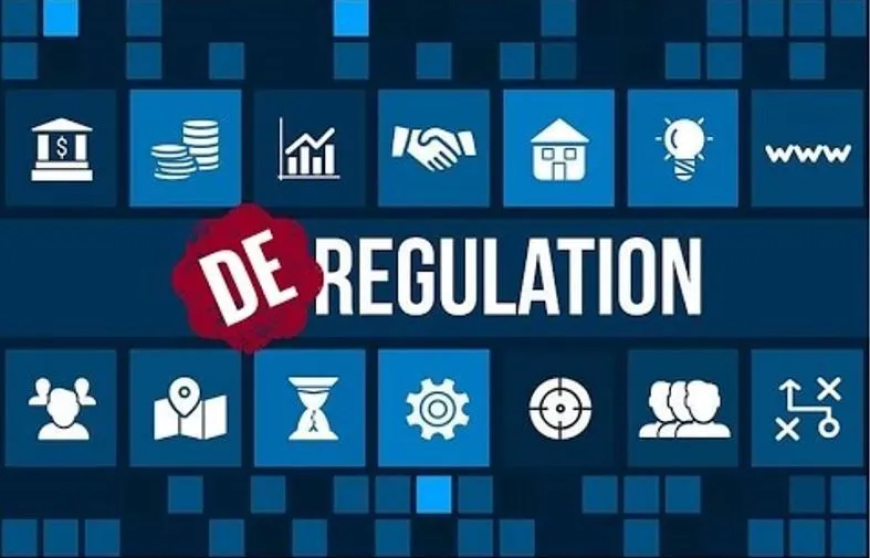Fueling India's Innovation Engine
Explore how reducing government intervention and promoting economic freedom can unleash India's entrepreneurial potential and drive prosperity.

Introduction: Unleashing India’s Entrepreneurial Spirit
India, home to one of the largest and most dynamic populations in the world, has all the ingredients to become a global entrepreneurial powerhouse. With a young and ambitious workforce, increasing access to technology, and a growing middle class, the potential for innovation and economic growth is immense. Yet, despite these favorable conditions, India's entrepreneurial spirit remains shackled by excessive regulations, bureaucratic hurdles, and burdensome taxation.
These constraints are stifling innovation, discouraging small businesses, and hampering the country's economic growth. In this article, we explore how India's current economic policies are holding back its entrepreneurs, the urgent need for deregulation, and how embracing economic freedom could unlock unprecedented prosperity.
1. The Stranglehold of Excessive Regulations on Entrepreneurship

India's regulatory environment is notoriously complex and cumbersome. Entrepreneurs and small business owners often find themselves drowning in a sea of paperwork, permits, and compliance requirements. From setting up a business to scaling it, navigating the labyrinth of regulations can be overwhelming and prohibitively expensive.
One of the most significant challenges is India's infamous license raj, a legacy of its socialist past. Although the country has made strides in reducing some of the bureaucratic hurdles, many industries still require a maze of licenses and permits that can take months or even years to obtain. These regulations often come with hidden costs in the form of bribes, middlemen, and wasted time.
A real-life example is the case of Vijay Shekhar Sharma, the founder of Paytm. Before Paytm became a household name in digital payments, Sharma had to navigate countless regulatory challenges to get his business off the ground. The complexities of obtaining licenses for digital payment services and meeting compliance requirements slowed down his progress and added unnecessary costs to the startup. Entrepreneurs like Sharma often find themselves spending more time dealing with red tape than focusing on innovation.
2. Bureaucratic Hurdles: A Roadblock to Innovation

Bureaucratic hurdles extend beyond regulations. The process of interacting with various government agencies can be a nightmare for entrepreneurs. Whether it's obtaining approvals, registering property, or paying taxes, dealing with India's bureaucratic machinery is often an exercise in frustration.
According to the Ease of Doing Business rankings by the World Bank, India has made progress in recent years, but it still lags behind in several key areas, such as enforcing contracts, registering property, and obtaining construction permits. The delays and inefficiencies in these processes discourage potential entrepreneurs from taking risks and starting new ventures.
Consider the case of Nasscom-recognized startup Playment, a platform for AI data labeling. Playment’s founders, while building their business, faced multiple bureaucratic roadblocks when applying for permits and dealing with compliance issues related to labor laws and taxation. These obstacles forced them to divert resources away from business development and toward navigating India’s complex administrative processes.
3. The Taxation Burden: Crushing India's Small Businesses

India's tax system is another major impediment to entrepreneurial growth. The high tax burden, combined with a complicated and often opaque tax code, makes it difficult for small businesses to thrive. The Goods and Services Tax (GST), while intended to simplify the tax system, has added layers of complexity for many small and medium-sized enterprises (SMEs).
For startups, compliance with tax regulations is not only time-consuming but also expensive. Many small businesses are forced to hire tax professionals just to keep up with the constantly changing rules and deadlines. The high tax rates and complicated filing processes drain resources that could otherwise be invested in innovation and growth.
An illustrative example of the taxation burden can be seen in the story of Harsh Shah, the founder of Fynd, an e-commerce platform. Shah has spoken publicly about the difficulties his company faced in managing GST compliance, which required constant attention and significant resources. For small businesses like Fynd, the complexity of the tax system is a major deterrent to growth.
4. Real-Life Struggles: Entrepreneurs vs. Red Tape

Stories of entrepreneurs battling red tape are not hard to find in India. Take the case of Deepinder Goyal, founder of Zomato, who has often highlighted the challenges of dealing with India's regulatory environment. Goyal and his team faced numerous hurdles in securing licenses and permits to expand Zomato's food delivery operations across different states in India. The patchwork of state and local regulations meant that the company had to navigate different rules and procedures in every new market it entered.
Another example is the founders of UrbanClap (now Urban Company), an online marketplace for local services. They struggled with licensing requirements and compliance issues related to labor laws, which made scaling their business more difficult. These obstacles not only slow down growth but also deter many would-be entrepreneurs from even starting.
5. The Need for Deregulation: Freeing India’s Entrepreneurs

To truly unleash India's entrepreneurial spirit, the government must prioritize deregulation and reduce its intervention in business. Simplifying the regulatory environment would enable entrepreneurs to focus on innovation and growth rather than navigating bureaucratic hurdles.
One key area for reform is the licensing process. Streamlining and digitizing the approval processes across sectors would save time and reduce costs for entrepreneurs. Additionally, the government should work toward eliminating unnecessary regulations that no longer serve a purpose in today's economy.
Labor law reforms are also essential to fostering a more business-friendly environment. The current system, with its myriad of rules and restrictions, makes it difficult for businesses to hire and manage employees efficiently. Easing labor laws, while ensuring worker protections, would encourage more entrepreneurship and job creation.
6. Tax Cuts: Relieving the Burden on Entrepreneurs

One of the most effective ways to foster economic freedom is through tax cuts. Reducing corporate tax rates, particularly for small businesses, would allow entrepreneurs to reinvest their profits into growing their companies. Simplifying the tax code and reducing the compliance burden would also go a long way toward making India a more attractive destination for startups.
For example, countries like Singapore and Hong Kong have embraced low-tax policies and simple tax systems, which have contributed to their status as global hubs for entrepreneurship and innovation. India could learn from these examples and implement tax policies that encourage risk-taking and investment.
7. Promoting Free-Market Policies: Let the Market Lead
A shift toward free-market policies could significantly boost entrepreneurship in India. Reducing government intervention and allowing market forces to drive business decisions would create a more competitive and innovative economy.
For instance, deregulating industries like telecommunications, education, and healthcare would encourage more private sector participation and investment, leading to improved services and greater economic growth. Allowing entrepreneurs the freedom to operate without excessive government oversight would unleash creativity and drive job creation.
Countries like South Korea have demonstrated how free-market policies can fuel economic growth. By reducing government intervention and promoting competition, South Korea transformed itself into one of the world's leading economies. India has the potential to achieve similar success by embracing economic freedom.
Conclusion: Economic Freedom is the Key to Prosperity
India's entrepreneurial potential is enormous, but it remains untapped due to excessive regulations, bureaucratic hurdles, and a burdensome tax system. For India to unlock its full potential and become a global leader in innovation, the government must prioritize economic freedom.
Deregulation, tax cuts, and free-market policies are the keys to unleashing India’s entrepreneurial spirit. By removing the obstacles that hinder entrepreneurs and small businesses, India can create an environment that fosters innovation, encourages risk-taking, and drives economic growth.
As India's digital and economic landscape continues to evolve, now is the time to champion policies that empower entrepreneurs rather than stifle them. Economic freedom is not just a path to prosperity—it is the foundation upon which India’s future success depends.
FAQs on Economic Freedom and Entrepreneurship in India
1. What are the main challenges facing entrepreneurs in India? Entrepreneurs in India face several challenges, including excessive regulations, bureaucratic hurdles, and a complex tax system. These obstacles make it difficult for small businesses to thrive and for new startups to get off the ground.
2. How can deregulation benefit entrepreneurs in India? Deregulation can simplify the process of starting and running a business, reducing the time and cost associated with navigating complex legal and bureaucratic requirements. It allows entrepreneurs to focus on innovation and growth rather than compliance.
3. Why is the tax burden a major issue for small businesses in India? India’s tax system is complex, with high rates and complicated compliance processes. Small businesses often struggle to keep up with the changing tax regulations, which can divert resources away from core business activities and stifle growth.
4. How do free-market policies promote entrepreneurship? Free-market policies reduce government intervention and allow businesses to operate more freely. This encourages competition, innovation, and investment, leading to economic growth and job creation.
5. What can India learn from other countries in promoting entrepreneurship? India can learn from countries like Singapore, Hong Kong, and South Korea, which have embraced low-tax policies, simplified regulations, and free-market principles. These policies have made them global hubs for entrepreneurship and innovation.
6. What role does economic freedom play in fostering innovation? Economic freedom provides entrepreneurs with the flexibility to experiment, take risks, and innovate without excessive government interference. It creates an environment where new ideas can flourish and businesses can grow.
What's Your Reaction?

















































